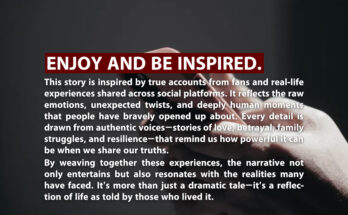I always knew my parents were harsh, but I never imagined they’d turn that cruelty on my son. We were visiting for the weekend, and from the moment we arrived, they picked at everything—his clothes, his speech, even the way he held his fork. I tried to deflect, to protect him, but their words cut deep. My father mocked his sensitivity, and my mother rolled her eyes at his curiosity. I felt like I was reliving my own childhood, powerless again—but this time, I wasn’t the only one hurting.
At dinner, my son asked an innocent question about space, and my dad scoffed, calling him “a little know-it-all.” My mother chimed in, saying he needed “discipline, not dreams.” I clenched my fists under the table, trying to stay calm. My son’s face fell, and I saw the light dim in his eyes. I wanted to scream, to defend him, but decades of conditioning kept me frozen. I whispered, “It’s okay,” but it wasn’t. I was failing him the same way I’d been failed.
Later that night, I apologized to my son. He looked at me and said, “Why do they talk to you like that? You’re amazing.” I broke down. He saw what I couldn’t say. He hugged me and whispered, “I’m not scared of them.” I didn’t know what he meant until the next morning. At breakfast, my dad made another snide comment, and my son calmly replied, “That’s not kind. I don’t like when people talk like that.” Silence fell. My parents stared, stunned. I was stunned too.
My father tried to laugh it off, but my son didn’t flinch. “You should be nicer,” he said. “You’re supposed to be family.” My mother gasped, but my son didn’t back down. I felt something shift in me—pride, courage, maybe even healing. For the first time, someone stood up to them. Not with anger, but with truth. My son didn’t yell. He didn’t cry. He just spoke. And in that moment, I realized he was stronger than I’d ever been allowed to be.
After that, the mood changed. My parents were quieter, more reserved. They didn’t apologize, but they stopped the insults. I think they were embarrassed—not just by my son’s words, but by their own reflection in them. My son didn’t gloat. He went back to talking about space and dinosaurs, as if nothing had happened. But everything had. He’d drawn a line they couldn’t cross. And he’d done it with grace. I watched him, in awe. He was only eight, but he’d taught me more than my parents ever had.
On the drive home, I asked him how he felt. “Good,” he said. “I didn’t want you to be sad.” I cried again. Not because I was hurt, but because I was healing. My son had given me something I never had—a voice. He reminded me that love doesn’t mean silence. That family doesn’t mean submission. That kindness can be firm. I promised myself I’d never let anyone dim his light again. And I’d never let mine stay hidden.
Since then, I’ve set boundaries with my parents. I don’t tolerate their cruelty, and I don’t excuse it. They still struggle to change, but I’ve changed. I speak up. I protect my son. I protect myself. And every time I feel doubt creep in, I remember that breakfast table. I remember my son’s calm defiance. I remember that courage isn’t loud—it’s honest. And I remind myself: I am not who they said I was. I am who my son believes I am.


